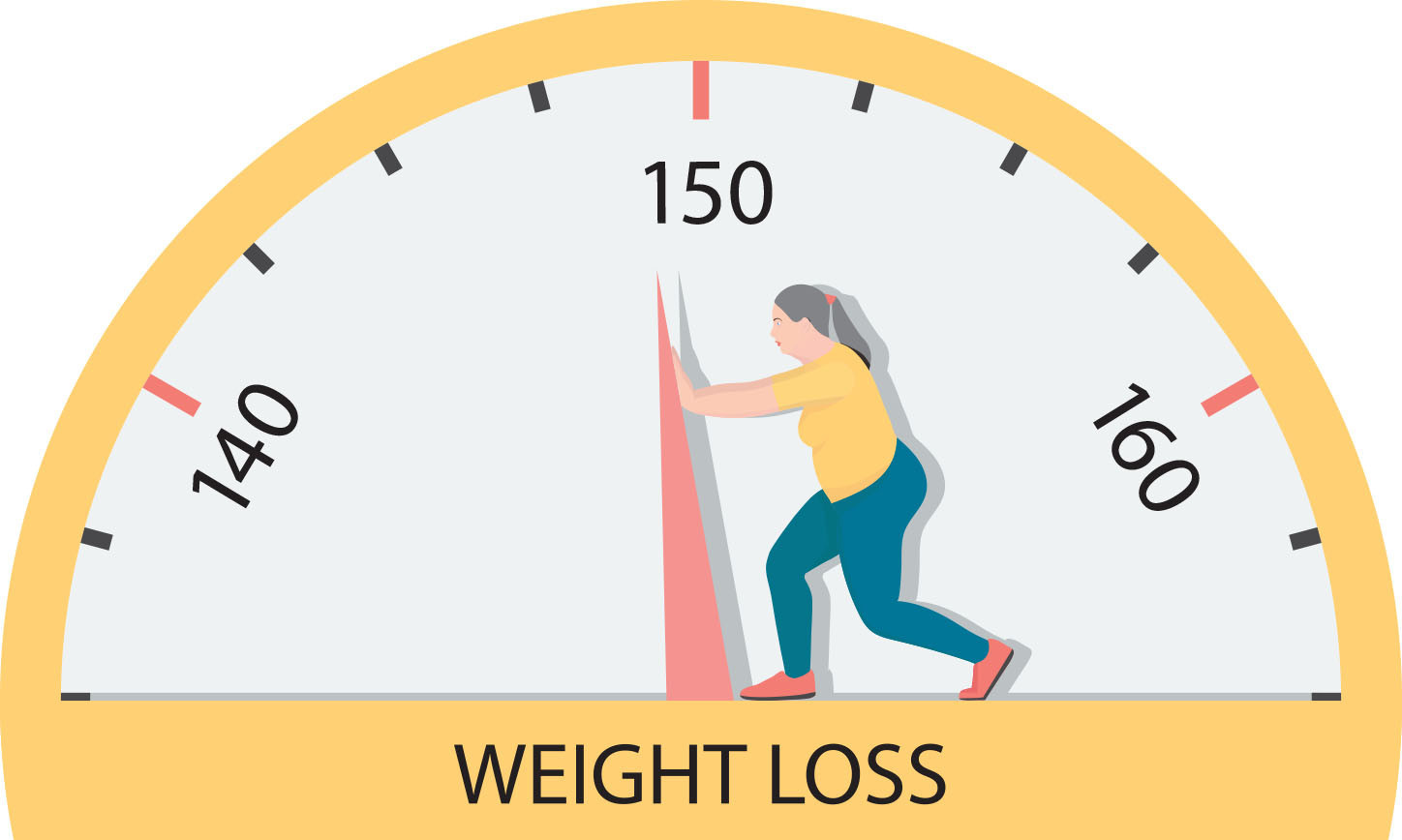Recent Blog Articles

Celiac disease: Exploring four myths

Does drinking water before meals really help you lose weight?

Which migraine medications are most helpful?

Want a calmer brain? Try this

Do tattoos cause lymphoma?

PTSD: How is treatment changing?

Concussion in children: What to know and do

Ever hear of tonsil stones?

Midlife ADHD? Coping strategies that can help

Ever worry about your gambling?
Exercise & Fitness Archive
Articles
Tips to keep lost weight off in the New Year
Work with your body, not against it, for long-term weight maintenance.
For many people, their New Year's resolutions include some sort of weight-loss goal. However, while extra pounds often come off, evidence shows they rarely stay off. Among overweight or obese people who are able to lose 10% of their body weight, just one in six is able to maintain the weight loss for at least a year.
Experts say it's not surprising that weight loss rarely sticks, considering what they now know about how the body works. "Most people believe that obesity is caused by overeating, while we now recognize that the main driver of obesity is one or more disruptions in the body's normal regulation of the amount of fat we maintain," says Dr. Lee Kaplan, an associate professor of medicine at Harvard Medical School and director of the Obesity, Metabolism, and Nutrition Institute at Massachusetts General Hospital.
We’re supposed to make resolutions now?
After everything that has happened in 2020, making New Year’s resolutions might be too much to expect of many. Setting goals for the coming year seems like too much to ask right now. Is it okay to just give yourself a break this year? Or is there another way of looking at the whole situation?
The beat goes on
Learn when, how, and why you should keep track of your heartbeat.
Soon after you wake up tomorrow morning, before you even sit up in bed, take your pulse. It's fairly easy if you have a clock or timer nearby (see "Measuring your heart rate"). Known as your resting heart rate, this value ranges from 60 to 100 beats per minute in most adults.
"To get a good sense of your resting heart rate, check it every few mornings over the course of several weeks," advises cardiologist Dr. Aaron Baggish, director of the Cardiovascular Performance Program at Harvard-affiliated Massachusetts General Hospital. It's best to measure your resting heart rate when you've been getting your typical amount of sleep and exercise and aren't feeling ill or dehydrated.
Harvard study: Unapproved drugs in brain-boosting supplements
News briefs
We all want to improve memory and thinking skills. But taking supplements that promise to boost cognition could be dangerous, according to a Harvard-led study published Sept. 23, 2020, in Neurology Clinical Practice. Scientists analyzed 10 different products that were marketed online to enhance thinking skills, and discovered all of them contained prescription drugs not approved for use in the United States, such as omberacetam, aniracetam, vinpocetine, phenibut, or picamilon. These medications are used in other countries — including Russia, Germany, and China — to treat conditions such as alcohol withdrawal, anxiety, brain injuries, concussion, dementia, insomnia, and strokes. Many of the supplements contained a cocktail of several drugs — combinations never tested in humans — that weren't always reported on the label. Also missing: the actual dosages, which scientists say were four times greater than doses doled out at foreign pharmacies. "And you can't figure out how much unapproved drug you're getting by reading the label," says lead researcher Dr. Pieter Cohen, an associate professor of medicine at Harvard Medical School who studies dietary supplements. "Taking these drugs can have direct effects on your body, plus side effects and interactions with your other medications." A safer bet: Get 150 minutes of moderate-intensity activity (like brisk walking) every week, and eat a Mediterranean diet. Both have been shown to support brain health.
Image: FotografiaBasica/Getty Images
It’s not too late to get in better shape
No matter what your age, you can improve your fitness.
If it's been a long time since you've exercised and you're feeling less than fit, you might think that it's too late to make a change. But you're wrong. You can improve your fitness at any age.
"The stories in this area are actually very dramatic. Even people 100 years old or older can build muscle strength," says Dr. Edward Phillips, assistant professor of physical medicine and rehabilitation at Harvard Medical School.
Harder workout intensity may not increase your longevity
Research we're watching
Good news if you take a more leisurely approach to your workouts: a recent study found that people who performed harder workouts didn't live any longer, on average, when compared with people who did more moderate workouts. Researchers studied a group of people in Norway who participated in five years of supervised exercise training. The participants included 790 women and 777 men (with an average age of 73), divided into three groups. Everyone followed federal recommendations to get 30 minutes of moderate exercise on most days of the week. But in addition to that, one group received two supervised weekly sessions of high-intensity interval training. A second group added two supervised moderate-intensity continuous training workouts per week. All three groups continued their assigned workouts for five years.
At the conclusion of the trial, 4.6% of the participants had died, but there was no significant difference in death rates between the group that followed the modest federal exercise recommendations and the two groups that did the more intense workouts. In addition, all groups had similar levels of cardiovascular disease and deaths from cancer. However, that's not to say that participating in regular high-intensity workouts wasn't linked to any benefits. The participants who did the harder workouts had better outcomes on certain measures of mental health and physical fitness.
How to build a better core
Your core is more than just your abdominals — it also involves your hips, back, and even your shoulders. To strengthen your entire core, take a loaded carry walk.
Your core is the stable part of your body that helps make everyday movements more efficient and safe — like whenever you reach, carry, walk, bend, or twist. A strong core offers other health benefits as you age in addition to proper movement (see "Get more from your core").
Some floor exercises like the plank and superman poses are great for engaging your core muscles. A plank pose is where you hold a push-up position — with straight arms or resting on your forearms — for 10 to 30 seconds.
Taking steps to avoid high blood pressure
Research we're watching
Walking even at a "casual" pace — covering a mile in 30 minutes — five days a week may lower the odds of high blood pressure in postmenopausal women, a new study finds.
Researchers relied on data from more than 83,000 women ages 50 to 79 who did not have high blood pressure. When they joined the study, they filled out questionnaires about their walking speed and duration. This was followed by yearly questionnaires that included checking for a diagnosis of high blood pressure.
Get FITT to better fight heart disease
If you've been diagnosed with heart disease, the FITT approach can reduce your risk for heart attack and stroke.
About half of all Americans have at least one of the key risk factors for heart disease, such as high cholesterol, high blood pressure, and excess weight.
You can address those risks with a heart-healthy diet and medications to lower blood pressure and cholesterol levels. But perhaps the biggest boost you can give your heart is regular aerobic exercise.
Reset your schedule, reset your health
Schedule shifts can hurt your health. The New Year is a great time to hit the reset button.
Throughout most of human history, the pattern of daily life was regular. Dreary for many, but regular. In recent centuries, "modern" life has introduced many irregularities, including changing work schedules. Advances in information technology mean that many of us are always connected — and that we spend time connecting at all hours. And the COVID-19 pandemic has introduced whole new irregularities into daily life.
One thing is certain: "When your schedule changes, you can lose the regular self-care routines that kept you active, eating right, and managing stress — things we need to control weight and inflammation and fight disease," says Dr. Monique Tello, a primary care physician and healthy lifestyle specialist with Harvard-affiliated Massachusetts General Hospital.
Recent Blog Articles

Celiac disease: Exploring four myths

Does drinking water before meals really help you lose weight?

Which migraine medications are most helpful?

Want a calmer brain? Try this

Do tattoos cause lymphoma?

PTSD: How is treatment changing?

Concussion in children: What to know and do

Ever hear of tonsil stones?

Midlife ADHD? Coping strategies that can help

Ever worry about your gambling?
Free Healthbeat Signup
Get the latest in health news delivered to your inbox!
Sign Up











